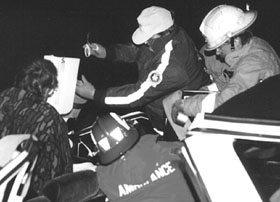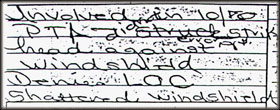Change In Mental State After Brain Injury
 Any Alteration in Consciousness.
Any Alteration in Consciousness.- Confusion, acting unusual.
- Not just at the scene, but hours later.
- Repeating themselves.
- Difficulty with Routine Tasks
If the inquiry does not identify a period of loss of consciousness, it may very well identify a change in mental state, such as being dazed or confused. Here the ambulance reports can be particularly helpful.
Also accident scene witnesses – police officers, ambulance attendants, passers by, even the driver of the other car may provide clues as to a change in mental state.
 The change in mental state can also occur hours after the accident: was the patient confused when they returned home? Were they just not themselves? This is very common. Maybe they thought they were fine at the time of the accident and refused medical treatment. If they were by their selves it is quite likely that no one noticed change in mental state at the time of the accident. Even if they were taken to the emergency room the medical staff could easily not recognize the change in mental state due to other injuries that they were focused on at the time.
The change in mental state can also occur hours after the accident: was the patient confused when they returned home? Were they just not themselves? This is very common. Maybe they thought they were fine at the time of the accident and refused medical treatment. If they were by their selves it is quite likely that no one noticed change in mental state at the time of the accident. Even if they were taken to the emergency room the medical staff could easily not recognize the change in mental state due to other injuries that they were focused on at the time.
One particularly common symptom in our experience is the patient continually asks the same question, again and again. Or as common, tells the same person, over and over again, what happened in the accident. Sometimes people pass this off as shock of the accident and do not realize the accident victim could actually be suffering from a traumatic brain injury. This and other symptoms should always be recognized especially by emergency room personnel. If more people were aware of the symptoms of traumatic brain injury there may be a lot less misdiagnosing of it.
Amnesia